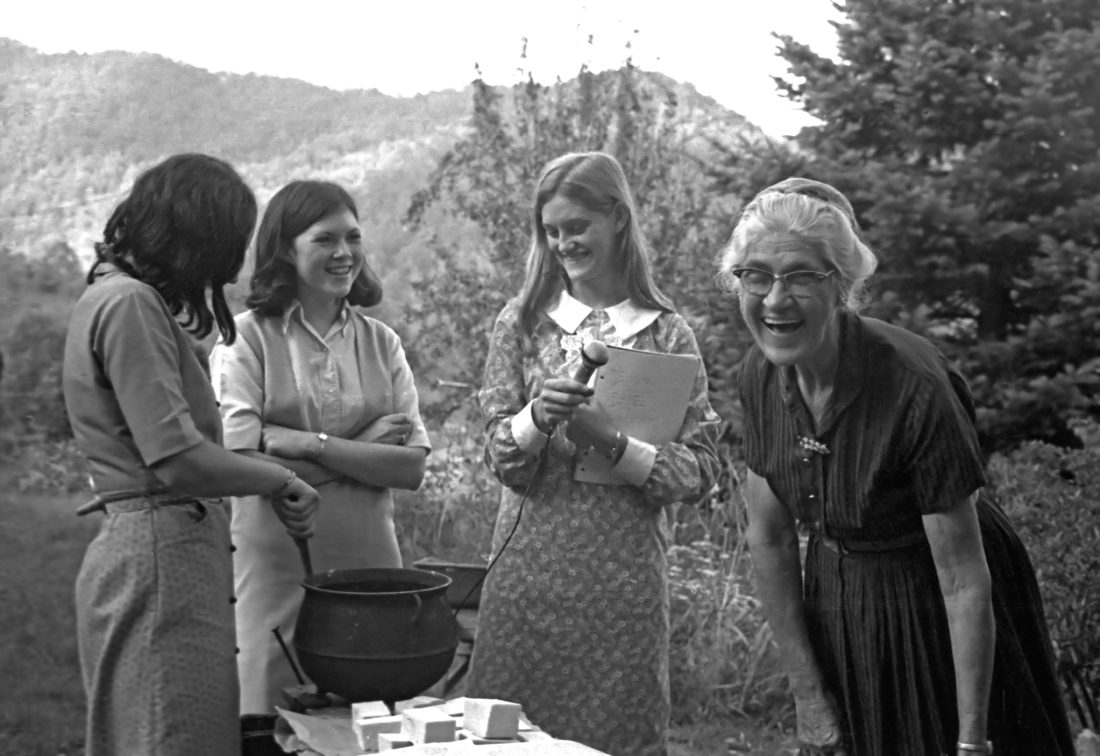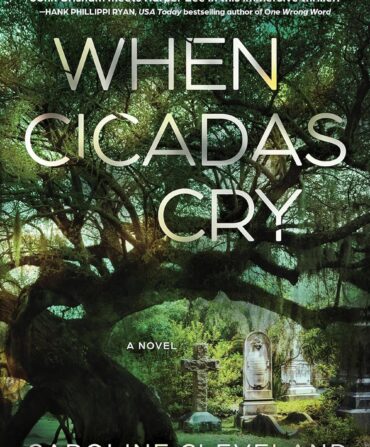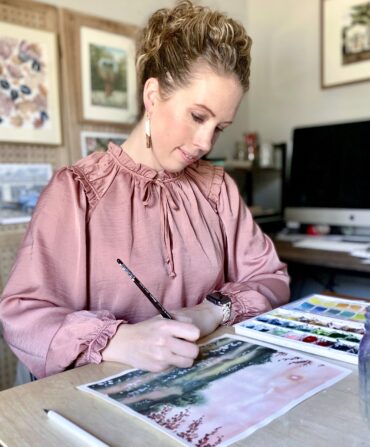Foxfire, the Appalachian book series and cultural collective, not only bridges generations, it also saves old-time mountain skills and foodways from extinction. Jesse Barlow, a local high schooler who takes classes at the Foxfire Museum & Heritage Center in Mountain City, Georgia, has learned blacksmithing, planted wild ginger, and gained an appreciation for his roots. “I’ve lived my whole life in Rabun County, and Foxfire changed my perception of it,” he says. “This isn’t just a place, it’s my home.”
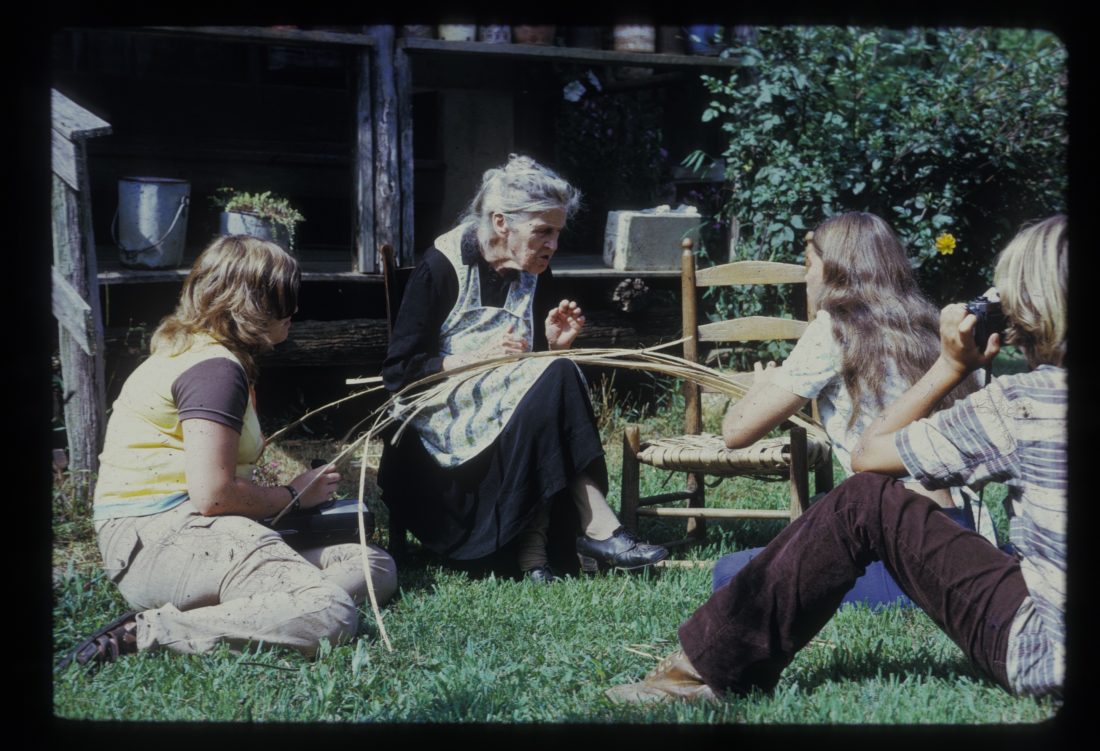
Photo: courtesy of Foxfire
Aunt Arie Carpenter in 1971 explaining the use of oak splits for chair bottoms to Foxfire students.
Foxfire Heritage Day (June 22) is a daylong celebration with workshops, tours, and plenty of moments to chat with the young folks who are collecting the region’s stories in a tradition that dates back decades. In 1966, a group of prep-school students from the nearby Rabun Gap–Nacoochee School created a magazine that collected interviews with their neighbors, plus tips on Southern know-how. They called the publication Foxfire, after a luminescent fungus found in the forest, and wrote about chair caning, soap making, and banjo stringing. “The students were amazed, awed, and humbled by the scope of knowledge and experience that the people they interviewed carried,” says TJ Smith, the group’s executive director.
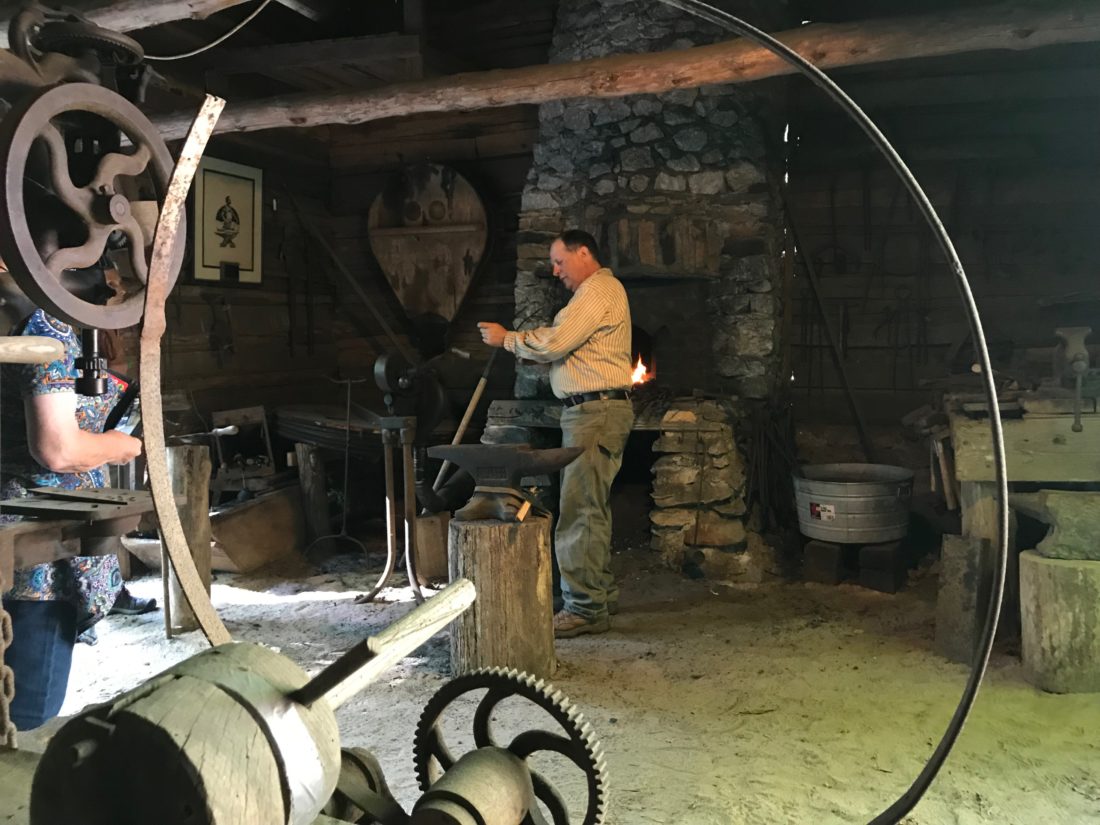
Photo: Courtesy of Foxfire
Blacksmith Wind Chapman demonstrates at Heritage Day in May 2018.
Readers were smitten, too. The magazine led to a series of twelve Foxfire books, and in 1977, the heritage site opened on a 106-acre Chattahoochee National Forest preservation parcel. Today, Foxfire remains both a written record of Appalachia’s industrious mountain people and a time capsule open to the public for tours and classes. “With technology, the gaps between grandparents and grandchildren are getting larger,” Smith says. “But kids are still interested. To understand our culture, we have to engage it.”
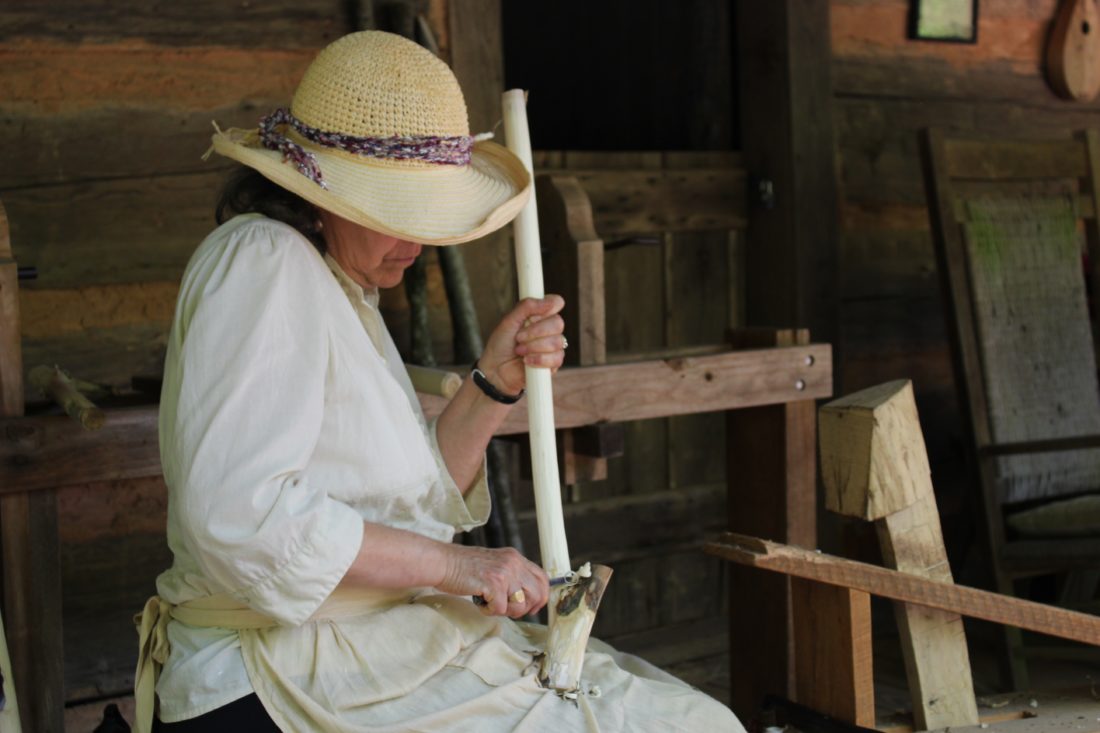
Photo: courtesy of Foxfire
Isabel King, a walking-stick maker, demonstrates at Heritage Day 2018 with her husband Jerry King, from whom she learned the craft.
Why Foxfire Matters to Me
Southerners share how the Appalachian book series shaped their lives
“The first book became a revered foundational text for any self-respecting hippie, me among them. It was also an affirmation of the wisdom of the region and the people I came from—something the culture at large did not acknowledge. My daughter now has the full set and uses it in her classroom in the Western North Carolina school where she is a teacher and my grandson a student. Talk about an unbroken circle.”
—Ronni Lundy, author, Victuals
“We had Foxfire in my high school library. My grandparents grew up in the foothills of the North Carolina mountains, and these books reminded me of how they were raised and lived. I also love folk music, and these books go hand in hand with that culture.”
—Dolphus Ramseur, manager, the Avett Brothers
“Next to the Bible, these were among the first books that I learned to read, and I put what I read into practice. I wandered the sylvan forests of Appalachia eating sochan and making berry buckets from yellow poplar bark. When my elderly neighbors discussed ways of life completely foreign to most boys my age, I was able to nod and follow along. Few things are more comforting to an elderly mountaineer than the knowledge that another generation will keep his or her stories and way of life alive.”
—Boyd Hopkins, head naturalist at Blackberry Mountain, in Walland, Tennessee


